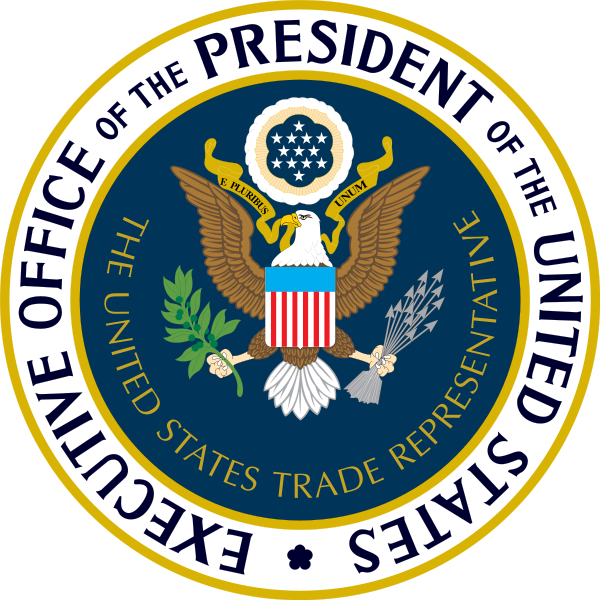The US federal government’s default has been averted – at least for now. On October 7, the Senate voted to raise the debt ceiling by $ 480 billion, an amount the world’s largest borrower would need to meet its obligations by early December. cryptocurrencies
The deal secures an interim solution for a week-long partisan impasse that has unsettled investors at home and abroad. The unthinkable prospect of a US default seems more conceivable than ever.
When system-wide uncertainty peaked prior to the vote, crypto markets performed well, led by Bitcoin’s biggest bull run (BTC) in months. This has fueled traditional narratives about the separation of cryptocurrency from more traditional asset classes and the perception of Bitcoin as a safe haven in times of impending financial disaster.
So what are the potential effects of the debt limit crisis on the role of digital assets in the global financial system?
Increase your own credit card limit
The United States government, by controlling the pressures of the world’s reserve currency, has the unique power to set its own debt limit. Congress first set a limit on total national debt in 1939 and has since increased that limit more than a hundred times.
While raising the debt ceiling isn’t usually a partisan issue, things were different this time. Aided by the Democrats ‘ambitious climate and social spending agendas, Senate Republicans have categorically refused to support their opponents’ efforts to resolve the problem.
Republicans’ failure to support raising the debt ceiling, which requires 60 votes to pass the Senate, instead of the simple majority that Democrats already have, could be seen as a symbolic move. The increase in the loan amount in itself does not entitle to new expenses, but allows existing obligations to be covered.
Party politics aside, some critics believe that government debt policies based on ever-increasing credit limits are bad for the average American’s wallet. Chris Kline, co-founder and CEO of crypto retirement provider Bitcoin IRA, told Cointelegraph:
“On average, the government has given itself the opportunity to increase the credit card limit every year for the past hundred years, and that has fragmented the middle class. America’s middle class is suffering from rising inflation rates and rising costs, all of which are due to monetary policies expanding the dollar balance sheet. “
A place full of danger
The Senate’s preliminary ruling has agreed to avert the debt ceiling issue only until early December, effectively perpetuating the macroeconomic turmoil. One prominent argument is that this uncertainty could affect Bitcoin in the coming weeks.
Arina Kulackovska, Head of Corporate Payment Solutions at the CEX.IO crypto exchange, believes that “this uncertainty could continue to be the driver of the BTC rally”.
At the same time, Kulackovska noted that cryptocurrencies are beginning to “decouple from the old markets,” which could make them less susceptible to macroeconomic dynamics that are having a significant impact on the economy.
Kay Khemani, managing director of the online trading platform Spectre.ai, believes that the impact of the debt ceiling suspension on financial markets as a whole, including digital assets, “could be cheap because it would mean there would be more liquidity in (read: more debt ) ”, Which tends to flow into financial assets first.
Khemani went on to comment, “Increased debt undermines the value of the dollar over time, and this reinforces the – albeit potentially incorrect – narrative that crypto is a safe haven.”
However, the extent to which cryptocurrencies have decoupled from other assets such as stocks is still controversial. Eric Bleeker, an analyst at investment advisory firm The Motley Fool, commented on Cointelegraph:
“As a currency that relies on given math rather than politics, one would think that Bitcoin would benefit from events like the debt ceiling. […] While most Bitcoin aficionados would point out that it is a limited supply asset that will go up in value as the US owes more, the reality is most closely correlated with the value of other assets. “
One example Bleeker cites is that last March, at the start of the pandemic, Bitcoin fell more than 50% in a short period of time. He added that things could turn out differently in the long run, as events like the debt crisis crisis undermine confidence in the dollar and make alternatives like Bitcoin more attractive.
Long term benefits
While industry participants and analysts differ on the short-term impact of the US federal debt ceiling uncertainty on the crypto market, most of them appear to be consolidating as they discuss how this could affect the market in the long run. Two frequently mentioned simultaneous trends are the loss of confidence in the dollar and the institutions that support it, as well as the growing demand for cryptocurrencies.
Related: Cryptocurrencies And Pension Funds: Like Oil And Water Or Maybe Not?
Haohan Xu, CEO of the digital asset trading platform Apifiny, expects that raising the debt ceiling will “put more buying pressure on BTC, which will cause the price to rise steadily over time”. Marie Tatibouet, Chief Marketing Officer at Gate.io crypto exchange, believes that “the quality of crypto will shine through as a market hedge”. Tatibouet added that the crypto market has grown faster than stocks and gold since the beginning of the pandemic, adding, “If sovereign defaults really lead to a financial crisis, then crypto will be a safe haven in the long run, as has been proven. “
Daniel Gouldman, CEO and co-founder of the financial services company Unbanked, calls the whole dance of raising the debt ceiling “absolutely ridiculous” as it makes the US credit score a hostage to party politics:
“We welcome more people to crypto as our elected officials continue to gamble with full confidence and trust in the US dollar and the US government’s commitment to upfront government decisions.”
Ron Levy, CEO of blockchain education and training company The Crypto Company, notes that the contrast between the two financial systems created by the debt crisis crisis is striking. Levy commented to Cointelegraph that this may be the moment the crypto industry can finally break away from traditional finance:
“Traditionally, we cannot avoid the continued printing of money, rising inflation and economic uncertainty. On the crypto side, we have an industry that has grown and continues to grow exponentially. “
It is impossible to tell if a final separation can be achieved, let alone when. However, the debt ceiling crisis highlights the difference between digital and traditional management – and the comparison isn’t particularly cheap for fiat currencies.
Follow the Youtube Channel | Subscribe to telegram channel | Follow the Facebook page





















